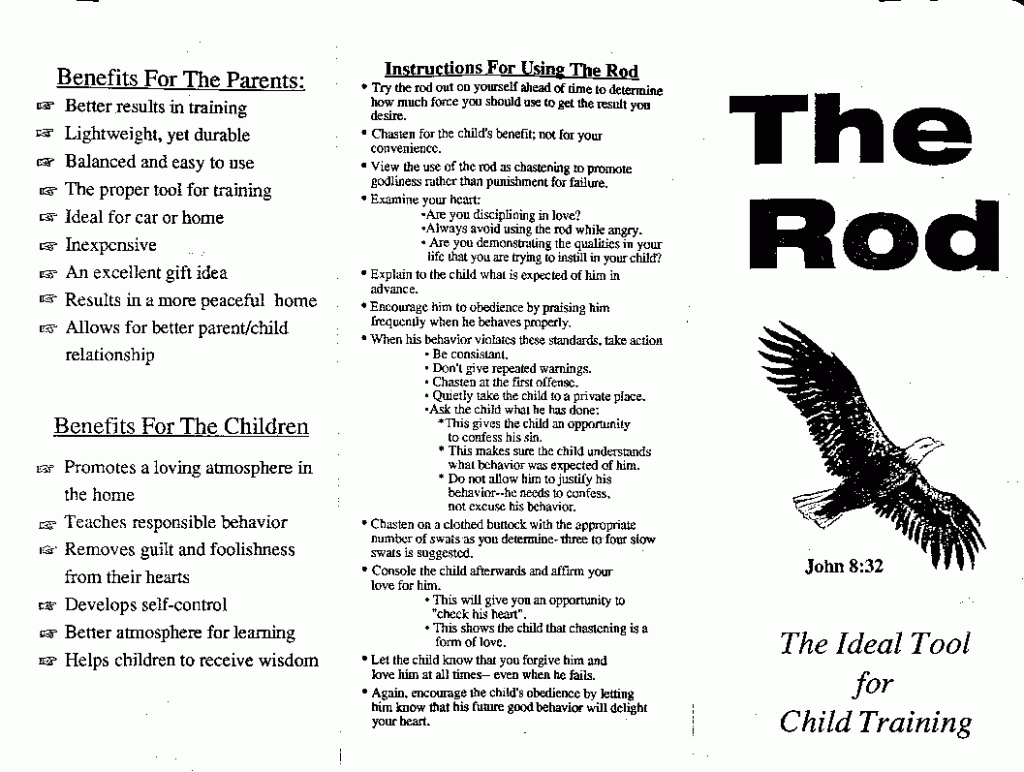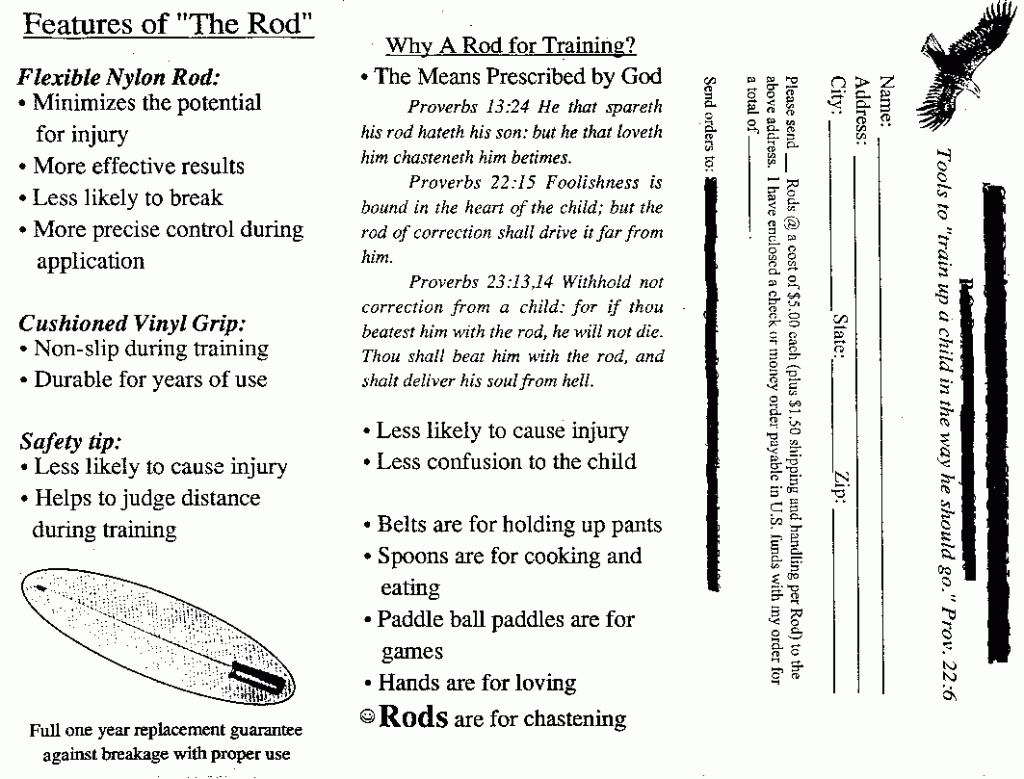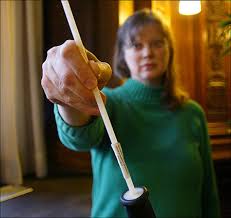Back in the day (well, the late 90s/early 00s to be a bit more precise), a rather eye-catching advert ran regularly in certain select publications. These adverts were for The Rod.
The Rod was pretty much a modern-day successor to the cane – a 22in long dowel made from flexible nylon, with a padded handle at one end and a ‘safety tip’ at the other. It was designed with one purpose; to spank little boys and girls’ bottoms when they misbehaved – or ‘child training’, as the advertisement put it somewhat euphemistically.
“Spoons are for cooking, belts are for holding up pants, hands are for loving, and rods are for chastening.” Thus ran the sales spiel. Here are the instructions for its use:


The Rod was the creation of Clyde Bullock, a motor mechanic hailing from Eufaula, Oklahoma. Bullock set up a small side business venture, the intriguingly-named Slide’s Manufacturing Co, to manufacture and sell the implement.
Eufaula itself is a Bible Belt city where Bullock’s idea for traditional family discipline would hardly cause a ripple in most homes. This, after all, is the land where daddies are ever ready to take junior to the woodshed for a dose of the strap, and where almost every mom has a hairbrush in her purse.
Bullock chose his advertising targets with care. The Rod, which retailed at a modest $5 per unit, featured regularly in the back pages of the magazine Home School Digest. The home schooling landscape in the US has for many years been dominated by conservative Christians, the vast majority of whom look to the book of Proverbs for advice on child discipline. “Whoever spares the rod hates their children, but the one who loves their children is careful to discipline them.” (Proverbs 13:24)
Bullock, himself a Southern Baptist, also believed that his product was in keeping with biblical teachings. Other parents appeared to agree with him, and over the course of about six years in business, Bullock sold ‘a few a week’.
”I’m one of these simple people,” Bullock said. ”The Bible is what it is – I’m not trying to change it. God is right. We have to have faith in that.” Bullock also claimed that The Rod was safer than either a paddle or belt. Which, to be fair, it probably was.
Who knows how long Bullock would have continued to sell The Rod quietly from his Oklahoma home – but his downfall finally came about via a somewhat atypical reader of Home School Digest, Susan Lawrence of Arlington, Massachusetts.

Lawrence (pictured with an example of the implement) was flipping through the magazine one spring day when she came across the advertisement for The Rod, and was horrified by what she read.
A Christian liberal, Lawrence started a national campaign to stop what she saw as the misuse of the Bible – and asked the federal government to ban The Rod. The government didn’t go as far as that, but the amount of negative publicity in the liberal media against The Rod finally began to stack up.
The company which manufactured the padded handle for the implement was identified by Lawrence’s campaign and quickly pulled out of its agreement to supply Slide’s.
Faced with both this blow and the mounting pressure against him personally, Bullock finally decided to ‘voluntarily’ halt production of The Rod. “I feel it has run its course,” was his final verdict on the business venture.
The saga of The Rod is a somewhat unusual one which arguably points up an inherent hypocrisy among some pro-spanking parents, and indeed amongst the establishment in general. After all, in many parts of the world, children are still spanked daily with an implement of some sort.
However, they are usually more makeshift, everyday objects pulled into service for the purposes of child discipline – belts, hairbrushes, slippers and wooden spoons.
For those parents determined to make a more formal job of the process, there is no shortage of suppliers of canes or punishment straps, some of which inevitably end up being used on young bottoms, despite the ‘consenting adults only’ warnings on their websites.
Bullock’s sin, in the eyes of his critics, was to dare to market an instrument openly and specifically for spanking children. The fact that The Rod was most probably a less severe implement than many of its more homely and commonly-used alternatives didn’t enter into the argument.